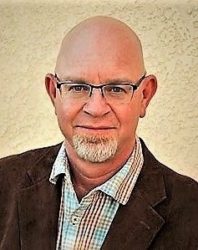 Scott Brassart
Scott Brassart
Last week, we discussed how sex and porn addicts can best work Step 3 of the 12 steps, along with the benefits of working that step. This week, our focus logically moves to Step 4.
Step 4 reads as follows:
Made a searching and fearless moral inventory of ourselves.
Most active addicts consider themselves to be victims, and they use that as justification for engaging in their addictive behaviors. They say things like:
- Nobody understands me. That’s why I drink and use and act out sexually.
- My boss hates me. I think I’ll get even by showing up high and looking at porn all day.
- My wife is a nag, so why should I go home after work? The women at the strip club are more fun.
Step 4 puts a stop to this sort of “stinking thinking.”
In working Step 4, we take a hard, unrelenting look at our lives. At the end of Step 4, we realize that we are not victims; instead, we are active participants in the mess our lives have become.
Many addicts with long-term sobriety point to Step 4 as the turning point in their recovery. Before working Step 4 we were battling all of the “problems” in our lives – the reasons we had for engaging in our addiction. And these reasons were nearly always external (people, organizations, and events). After working Step 4, we know better. We understand that the problems in our lives belong to us and no one else.
 Interestingly, there is a tremendous lack of consensus as to the best way to work this cornerstone step. All methods, however, are constructed with the same basic goal in mind: for us to walk away seeing how we have been an active participant in our addiction and our messed-up life. One of the most commonly used methodologies – and the approach I utilize when working with newly recovering sex/porn addicts – is outlined below:
Interestingly, there is a tremendous lack of consensus as to the best way to work this cornerstone step. All methods, however, are constructed with the same basic goal in mind: for us to walk away seeing how we have been an active participant in our addiction and our messed-up life. One of the most commonly used methodologies – and the approach I utilize when working with newly recovering sex/porn addicts – is outlined below:
- We list the ways in which we have avoided taking personal responsibility. This may include blaming others for the problems in our life; using the actions of others as justification for our own bad behavior; lying to avoid taking blame for something we actually did; and behaving in ways that distract or divert attention from our bad behavior. As we create this list, we should be both specific and general, listing as many items as we can.
- I told my parents that the drugs in my bedroom belonged to a friend, not me, when they really were mine.
- I told my wife she was being paranoid, that I really did fall asleep on the couch at work, but really I was out all night doing cocaine and having sex with a prostitute.
- We list the ways in which we have misused our anger. This may include lashing out when we were caught in our addiction, using anger to justify our addiction, and nursing grudges and resentments. As we create this list, we should be both specific and general, listing as many items as we can.
- I am still angry about the way my high school baseball coach treated me. Every time I watch baseball on TV I feel like relapsing.
- I yelled at my kids for making a mess to hide from my partner the fact that I was looking at porn all day.
- We list the ways in which we have been paralyzed by fear. When did we fail to act even though we should have? What conversations or actions have we put off because we were too afraid to move forward? As we create this list, we should be both specific and general, listing as many items as we can.
- I have hated my job for years, but I’m too afraid to quit. So instead I just secretly drink and play with hookup apps all day to dull the pain.
- I knew that my wife was cheating on me, but I was afraid that if I confronted her, she would leave me. So I just kept my mouth shut and had my own affairs.
- We list the things we’ve done that we’re ashamed of. We include all instances where we did not live up to our own values or practice what we preached. A good place to start is listing all the things we’re keeping a secret. As we create this list, we should be both specific and general, listing as many items as we can. Examples:
- I had unprotected sex with my wife even though I knew I had contracted an STD.
- I spent my child’s college fund on affairs and prostitutes.
Yes, that’s a pretty rough road to travel, as we must own up to a lot of lies, fears, and bad behavior. And, amazingly, the process is not over yet. Now we must go back and look at each item on our four lists, asking:
- Who was harmed by my actions?
- What was the nature of this harm?
- What is my part in this?
Another form of the step 4 inventory asks us to also list our resentments and fears. With each resentment or fear we ask:
- What parts of my life (self-esteem, finances, emotional security, ambitions, personal relationships, sexual relationships, etc.) are affected by this resentment/fear?
- What is my role in this resentment/fear?
Once this process is complete, it becomes very difficult to continue blaming others for our addictive behavior and life problems. As more than one recovering addict has stated, “Step 4 taught me that the cause of all the problems in my life was me. I didn’t need to change the world and all the other people in it; I needed to change myself.”
* * * * * * * * * *
If you or someone you care about is struggling with sex, porn, or substance/sex addiction, help is available. Seeking Integrity offers inpatient treatment for sex, porn, and substance/sex addicts, as well as low-cost online workgroups. At the same time, SexandRelationshipHealing.com offers a variety of free webinars and drop-in discussion groups, podcasts, and more.
